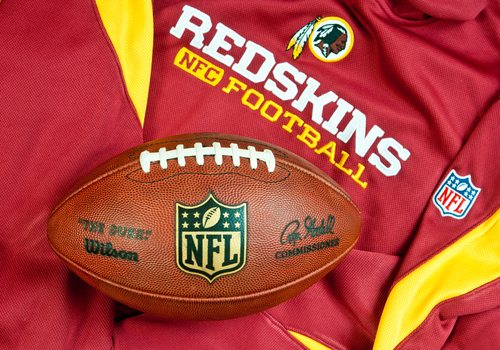
August 14, 2014; Arizona Republic
Like the Energizer Bunny, Dan Snyder keeps on going and going, and with every step demonstrates a disregard for many of the values and principles that undergird the supposed commitment of nonprofits and foundations to encouraging public discourse and, regarding the name of his National Football League franchise, combating racial discrimination. Here’s the latest, and it’s a doozy.
As we have reported, this past June, the U.S. Trademark Trial and Appeal Board cancelled Snyder’s team’s trademark protection for its racially disparaging name. Snyder and the team pledged to challenge the decision, but he has adopted a particularly notable strategy: He is suing the Native Americans who brought the successful trademark case.
So-called “SLAPP suits”—strategic lawsuits against public participation—are often filed by deep-pocketed interests in order to scare off citizen challengers, who find themselves facing legal costs that they are generally poorly equipped to fend off. SLAPP suits are frequently criticized as a tool of wealthy corporations (like the Washington NFL team) to intimidate opponents and their allies from continuing their efforts.
Sign up for our free newsletters
Subscribe to NPQ's newsletters to have our top stories delivered directly to your inbox.
By signing up, you agree to our privacy policy and terms of use, and to receive messages from NPQ and our partners.
That appears to be Snyder’s tactic here. The lead in the case against Snyder on the trademark was Amanda Blackhorse, a Navajo, a 32-year-old social worker. Blackhorse is one of five people identified as the plaintiffs who challenged the team’s trademark. The others included Phillip Martin Gover (Paiute), Courtney Tsotigh (Kiowa), Marcus Briggs-Cloud (Muscogee), and Jillian Pappan (Omaha). None of these people make the list of the wealthiest people in the nation, unlike Snyder, who personally is worth some $1.2 billion according to Forbes. Blackhorse told the Arizona Republic that she expected Snyder’s tactic and doesn’t intend to roll over for the D.C. billionaire.
Snyder and his legal advisors are unlikely to say that their litigation is meant to intimidate Blackhorse or other Native Americans. Many states have anti-SLAPP legislation, however, we don’t know offhand about the application of anti-SLAPP legislation in situations like this, nor do we know whether a challenge to Snyder’s SLAPP strategy would work.
The owner of the Washington NFL team has not been shy about his use of the courts to challenge critics. In 2011, Snyder filed a $2 million libel suit against the Washington City Paper, an alternative newspaper in the D.C. area, regarding a cover story, “The Cranky Redskins Fan’s Guide to Dan Snyder,” that, he charged, contained four misstatements and a caricature of him with a goatee and horns, which he alleged was anti-Semitic. Snyder also sued the author of the story, Dave McKenna, as well. (Snyder later admitted to the New York Times that hadn’t even didn’t bothered to read the story itself.)
The City Paper fought vigorously, using D.C.’s anti-SLAPP legislation as part of its argument, until Snyder finally dropped the case. The City Paper’s explanation of what happened summarizes the problem with SLAPP suits like Snyder’s and what they can mean to entities with less access to resources than Snyder and his NFL franchise:
“City Paper is a small news organization with limited resources, and defending ourselves against this lawsuit has cost massive amounts of time and money, well beyond the $34,308.91 that readers have contributed to our legal defense fund. Despite those costs, we are proud that we never wavered or allowed ourselves to be bullied, ultimately leading Snyder to dismiss his case. Though the District’s anti-SLAPP law says courts ‘may’ have awarded us some of our litigation costs had we pursued them, we concluded that it wasn’t worth spending substantially more money, energy, and attention for what would have only been a chance of recovering a portion of what we’ve spent. Today, we got what we wanted all along: dismissal of a case expressly designed to pressure us, and filed by a man who now apparently says he never even read the story in the first place. Now we’re eager to get back to our business of covering the city’s politics and culture—including its sports culture—without this distraction.”
Perhaps Nonprofit Quarterly will join Blackhorse and her colleagues on the receiving end of a Snyder lawsuit meant to shut up the critics. Until then, we will watch how Blackhorse, et al. do battle with the very thick wallet of Washington NFL team owner Daniel Snyder.—Rick Cohen










